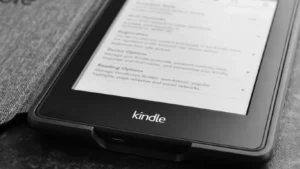The Evolution of Smart Home Devices: Transforming the Way We Live
In an age where convenience meets innovation, smart home devices have rapidly transitioned from high-tech novelties to everyday essentials. No longer reserved for luxury homes or tech enthusiasts, these intelligent systems are now reshaping how we interact with our living spaces.
From remotely adjusting your thermostat to receiving real-time alerts from your home security system, smart home technology is making our homes safer, more energy-efficient, and remarkably convenient. Whether you’re a busy professional, a parent, or a tech-savvy homeowner, the power to control your environment is now at your fingertips.
In this blog post, we’ll explore the evolution of smart home technology, dive into current trends, highlight key benefits, and look ahead to the future—revealing how these innovations are transforming the way we live, work, and connect at home.

🕰️A Brief History of Smart Home Technology
The journey of smart home innovation began with basic home automation, long before the term “smart home” became mainstream. In the early 2000s, homeowners were introduced to programmable thermostats, motion-sensor lights, and remote-controlled appliances—offering convenience, but little real-time control or adaptability.
🌐 The IoT Era: A Turning Point
The true transformation came with the rise of the Internet of Things (IoT). As Wi-Fi became more accessible and cloud computing more robust, it became possible for everyday household devices to connect, share data, and be controlled remotely via smartphones or voice assistants.
This connectivity enabled the shift from isolated automation to intelligent ecosystems—where your thermostat could learn your schedule, your lights could respond to voice commands, and your security system could send instant alerts to your phone.
🔄 Integration and Evolution
As major tech players like Amazon, Google, Apple, and Samsung entered the space, smart home technology became more affordable, scalable, and user-friendly. Open-source platforms and third-party integrations further enhanced compatibility, allowing users to build custom, interconnected environments tailored to their needs.
From basic automation to intelligent, voice-activated living spaces, the evolution of smart home technology reflects a broader shift toward personalized digital lifestyles and energy-conscious living.
🌐 The Role of IoT in Smart Home Control
The Internet of Things (IoT) has redefined what it means to live in a connected home. What began as individual smart gadgets—like Wi-Fi-enabled thermostats or smart light bulbs—has evolved into a synchronized network of intelligent devices that communicate with each other in real time.
Thanks to IoT, your smart thermostat can adjust itself based on your location, your lights can dim when your smart TV turns on, and your security system can arm automatically when you lock the front door—all without manual input.
🧠 From Devices to Ecosystems
What makes this possible is the integration of IoT platforms such as:
Amazon Alexa
Google Assistant
Apple HomeKit
Samsung SmartThings
These platforms act as centralized control hubs, allowing multiple smart home devices—often from different manufacturers—to work together seamlessly. Whether you’re using voice commands, mobile apps, or automated routines, you gain total control of your environment from anywhere in the world.
📱 Remote Access, Real-Time Response
The beauty of IoT-powered smart home control lies in instant access and responsiveness:
Forgot to turn off the lights? Do it from your phone.
Need to check who’s at the door while you’re abroad? Get a live video feed in seconds.
Want to warm up the house before you arrive? Adjust your thermostat remotely.
This level of integration and convenience goes beyond comfort—it’s about efficiency, security, and peace of mind.

🏠 Types of Smart Home Devices Every Homeowner Should Know
Let’s break down the essential smart devices that are shaping the modern home:
🗣️ 1. Smart Speakers & Voice Assistants
Devices like Amazon Echo, Google Nest Audio, and Apple HomePod serve as the nerve centers of smart homes. They allow voice-based control of everything from lighting to thermostats to your morning playlist.
🌡️ 2. Smart Thermostats
Products like Nest Learning Thermostat and Ecobee optimize heating and cooling based on your habits, preferences, and weather. With remote access, energy savings have never been easier.
💡 3. Smart Lighting
Customizable lighting systems such as Philips Hue or LIFX offer automation, mood lighting, and energy efficiency. Control your home’s ambiance from your phone or voice.
🔐 4. Smart Security Systems
From video doorbells (like Ring) to smart locks and cameras, security has gone mobile. Monitor your home, get real-time alerts, and lock doors from anywhere in the world.
🍳 5. Smart Appliances
Smart fridges, ovens, washing machines, and robotic vacuums are making everyday chores effortless. Your fridge can even tell you when to buy milk!
📱 How Smart Home Control Improves Daily Life
Smart home control isn’t just about convenience—it’s a lifestyle upgrade.
✅ Save energy: Turn off unused lights, manage climate control efficiently, and monitor appliance usage.
✅ Enhance security: Get notified about unusual activities instantly.
✅ Improve comfort: Customize routines—wake up to your favorite music, set the perfect lighting for dinner, or cool the house before you arrive.
✅ Remote management: Control everything while you’re at work or on vacation.
⚠️ Challenges to Consider
Like all technology, smart homes face some challenges:
🔁 Interoperability
Not all devices “speak the same language.” New standards like Matter aim to unify different platforms for smoother integration.
🔐 Privacy & Security
Smart homes collect sensitive data. It’s crucial to:
Use strong passwords
Update firmware regularly
Choose trusted brands with solid encryption
🚀 What’s Next for Smart Home Devices?
As technology continues to evolve, smart home devices are poised to become even more intelligent, intuitive, and integrated into daily life. The next generation of smart homes will be powered not just by connectivity—but by artificial intelligence (AI), machine learning, and predictive analytics.
We’re entering an era where your home won’t just respond to your commands—it will understand your routines, interpret your preferences, and even anticipate your needs before you’re aware of them.
🧠 AI-Powered, Predictive Living
Here’s a glimpse into what’s coming:
Hyper-personalized climate control: Your thermostat will adjust based on your body temperature, activity level, and even stress signals—not just room temperature.
Health-monitoring environments: Smart beds, mirrors, and wearables will track your sleep quality, heart rate, and breathing, alerting you to potential health concerns and syncing with healthcare apps or providers.
Automated grocery management: Fridges and pantries will use sensors and inventory tracking to auto-order food, suggest recipes, and prevent waste based on expiration dates and your dietary preferences.
Emotion-responsive ambiance: Through biometric feedback and facial recognition, your smart home could adjust lighting, play music, or diffuse scents based on your emotional state—enhancing relaxation or focus as needed.
🔮 From Smart to Sentient
The shift will be from reactive smart homes—where you give commands—to proactive, context-aware environments that:
Learn from your daily habits
Adapt to changes in your lifestyle
Communicate with each other seamlessly
Deliver energy savings and wellness insights without effort
This future is not decades away—it’s already taking shape in experimental technologies and cutting-edge home automation systems.

🏁 Final Thoughts
From humble beginnings to full-blown home ecosystems, smart home devices have reshaped modern living. They offer not only convenience and security but also personalized, sustainable living experiences.
As technology continues to advance, the line between home and intelligent assistant will continue to blur—placing smart home control right at the center of our everyday lives.

Eduard Kingly is a travel and lifestyle content creator with a focus on personal development and education. He combines firsthand travel experiences with research-driven insights to guide readers in discovering new places, building better habits, and pursuing meaningful learning.




